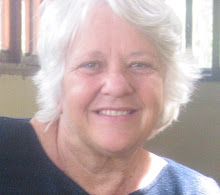Monday, April 27, 2009
A good story
Tuesday, April 21, 2009
100 months
"Summary
We calculate that 100 months from 1 August 2008, atmospheric concentrations of greenhouse gases will begin to exceed a point whereby it is no longer likely we will be able to avert potentially irreversible climate change. 'Likely' in this context refers to the definition of risk used by the Intergovernmental Panel on Climate Change (IPCC) to mean that, at that particular level of greenhouse gas concentration, there is only a 66 - 90 per cent chance of global average surface temperatures stabilising at 2o Celsius above pre-industrial levels.1 Once this concentration is exceeded, it becomes more and more likely that we will overshoot a 2o C level of warming. This is the maximum acceptable level of temperature rise agreed by the European Union and others as necessary to retain reasonable confidence of preventing uncontrollable and ultimately catastrophic warming. We also believe this calculation to be conservative. The reasons why and the assumptions behind our conclusion are detailed below. "
Thursday, April 16, 2009
The other side of the tracks

 Not everyone is a farmer; in fact most of the rural dwellers probably commute into town, causing traffic congestion 15 and 20 miles out of town, near the interstate exits.
Not everyone is a farmer; in fact most of the rural dwellers probably commute into town, causing traffic congestion 15 and 20 miles out of town, near the interstate exits. 

Saturday, April 11, 2009
Highway 11 approaching Birmingham





Signs of hope
 "The Southeast's Largest Black Weekly"
"The Southeast's Largest Black Weekly"

Tuesday, April 7, 2009
Looking back on a cold day
 I have to celebrate this sidewalk in Livingston, AL. It followed Highway 11 right out of town for almost three miles! Later I was told that the sidewalks of Livingston were in the Guiness Book of Records at one time.
I have to celebrate this sidewalk in Livingston, AL. It followed Highway 11 right out of town for almost three miles! Later I was told that the sidewalks of Livingston were in the Guiness Book of Records at one time. 
 I've been looking for signs of economic activity in rural Mississippi and Alabama. In addition to cattle, goat and horse farms, and the replanting of forests, I hadn't seen much else that I recognized , but this week I admired the fine pecan orchard above and noticed this ranch with two oil pumps (one white and one black on either side of the tower). It surprises me that I don't see more farming of food and other agricultural products. Maybe it's too early in the Spring.
I've been looking for signs of economic activity in rural Mississippi and Alabama. In addition to cattle, goat and horse farms, and the replanting of forests, I hadn't seen much else that I recognized , but this week I admired the fine pecan orchard above and noticed this ranch with two oil pumps (one white and one black on either side of the tower). It surprises me that I don't see more farming of food and other agricultural products. Maybe it's too early in the Spring.
